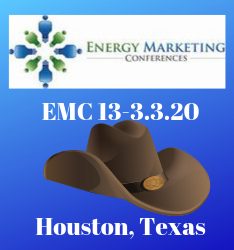|
|
|
|
|
Utility: Arizona Law Would Require ACC To Regulate Return On Equity For Retail Supplier Under Electric Choice
The following story is brought free of charge to readers by EC Infosystems, the exclusive EDI provider of EnergyChoiceMatters.com
Tucson Electric Power Company (TEP) and UNS Electric, Inc. (hereafter, "TEP") said in comments to the Arizona Corporation Commission, concerning the ACC's review of retail electric choice, that, under electric choice, the ACC would be required, under its constitutional charge, to set the return on equity for competitive suppliers
TEP said that under Arizona law, "service must be provided at just and reasonable
rates that reflect fair value."
"Establishing a fair rate of return on equity is necessary to this
determination, lest competitive providers be given free rein to earn unjust, unreasonable
returns," TEP said
"Even though no other state with a restructured market limits return on equity for
competitive providers, the Commission would be required to do so here in the process of
establishing the maximum rates those suppliers could charge Arizona customers. If a
provider's costs subsequently increase, that provider would need to file a rate case
requesting Commission approval of a new, higher maximum rate. The Phelps Dodge
ruling prohibits the Commission from simply deferring these rate making decisions to the
market. This limitation is one of many reasons why electric 'competition' in Arizona
would bear little resemblance to the free markets that drive growth and generate wealth in
other sectors of our economy," TEP said
More broadly, TEP said regarding retail electric choice, "The evidence is clear that restructuring Arizona's regulatory system to allow retail electric
competition would not serve the public interest. The steep cost of transitioning to such a system
would drive fixed service costs higher, eliminating savings opportunities for all but the largest
energy users. That situation would only get worse after out-of-state energy marketers cherry-pick
large industrial customers. Residential customers and small businesses would bear a larger share
of system costs in a complex, confusing marketplace that, in other states, has all too frequently
resulted in overcharging and consumer fraud. Competitive energy providers accustomed to
offering multiple market-based rates in other restructured markets would instead be required
under the Arizona Constitution (and in accordance with the Phelps Dodge ruling) to submit
requests for Commission approval of similar rates here. In addition to determining whether "free
nights and weekend" rates, "friends and family" packages and other such offerings are just,
reasonable and based on fair value, the Commission would be pressed into implementing and
policing new market manipulation and consumer protection rules while hoping that a regional
RTO or perhaps CAISO keeps an eye on Arizona's energy resource needs and reliability
concerns."
In separately filed comments, APS said that, "The Commission will lose direct jurisdiction over generation policy," under retail competition
APS further said, regarding the surrender of authority over generation to FERC under restructuring that, "As environmental concerns have grown in importance, states that introduced retail
competition have struggled to reassert some control over resource planning. This has
precipitated significant conflict when it comes to state clean energy plans, which have come
under scrutiny by the Federal Energy Regulatory Commission ("FERC") as an intrusion into
FERC-jurisdictional capacity and energy markets. Conventional generators in competitive
markets continue to pursue legal and administrative remedies to state efforts to incentivize
clean energy, and the outcome could significantly increase the cost to customers of
maintaining state clean energy plans."
"[O]nce a state makes a decision to enact retail competition, state clean energy policies can impact wholesale
market prices and, therefore, become a key concern of the federal regulators that have
jurisdiction over these wholesale markets," APS said
Due to its lack of jurisdiction over wholesale generation (from which retail suppliers will source their supply and set rates), APS said that, "Importantly, the Commission will also lose its ability to ensure that electricity prices remain just and reasonable."
Regarding costs of creating a new RTO for Arizona, APS said, "In 2013, an analysis estimated that
start-up costs for a stand-alone Arizona RTO would be at least $100 to $300 million, the
implementation would take 4 to 5 years and it would have an annual operating cost near $100 million."
In separately filed comments, the Salt River Project said, "States that have moved to retail
competition: cede jurisdiction to the Federal Energy Regulatory Commission (FERC),
experience high levels of consumer fraud, have consistently demonstrated an inability to
provide new generation capacity to ensure reliability, and have not seen any clear
evidence of price benefits for residential consumers."
"[A]s the restructured industry develops, the just and reasonable requirement will pose
significant challenges, challenges which may cause the observer to seriously question the term
'deregulation'. It does not seem likely that the Commission can insure just and reasonable rates
by simply setting a range of rates, all of which are just and reasonable. This is because a rate that
might be considered just and reasonable in one point of time and set of circumstances, might not
be just and reasonable under other circumstances," SRP said
Docket RE00000A-18-0405
ADVERTISEMENT Copyright 2010-19 Energy Choice Matters. If you wish to share this story, please
email or post the website link; unauthorized copying, retransmission, or republication
prohibited.
December 2, 2019
Email This Story
Copyright 2010-19 EnergyChoiceMatters.com
Reporting by Paul Ring • ring@energychoicematters.com
NEW Jobs on RetailEnergyJobs.com:
• NEW! -- Channel Partner Sales Manager -- Retail Supplier
• NEW! -- Sales Channel Partner Manager -- Retail Supplier
|
|
|
|










